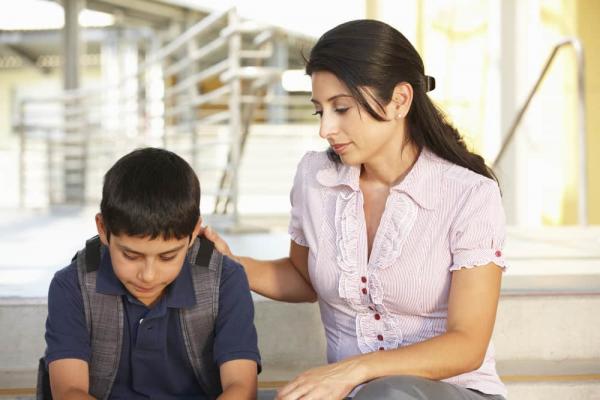
Editor's note: This article was originally published on Katy Blevins' blog, Chaos & Kiddos. It has been republished here with permission.
As parents, we often make the assumption that our children are picking up on the "obvious stuff" along the way. In the chaos of daily life, we leap into generalizations and force expectations on them when they may not understand why or what we mean.
A good example of this is learning how to say you're sorry. We're quick to force our kids to deliver a half-hearted apology with "You say you're sorry right now!" as punishment for wrongdoing, but do we ever take the time to explain how you do this properly and why it is important when it comes to life and the people around you? And let's really be honest, are we great examples of how to say you're sorry for our children? I know I'm not. I bet we often need the same reminders. Instilling empathy and awareness for one's conscience is invaluable for a quality life with fulfilled relationships. Here are a few tips for teaching your children how to say you're sorry and mean it.
The most important thing to remember is DO NOT teach your children to say sorry just because you told them to. Don't force it! Coughing up a hurried "Sorry" with a grumpy face, annoyed voice and general discontent with the overall expectation makes an apology meaningless for everyone involved. The "wrong-doer" doesn't claim responsibility for their actions and realize they caused hurt to someone else, so they are extremely likely to repeat the behavior in the future. The "victim" still feels hurt and devalued that no one has empathized with their pain or acknowledged that they shouldn't have been treated that way, so they walk away even more hurt.
That's not to say that delivering the apology just shouldn't happen if they don't mean it. It's simply a matter of introducing some thought and self-review into the scenario. Instead of forcing the immediate apology in the heat of the moment, try saying "Child of mine (insert name please "� ha), that behavior (describe specifically) is not OK because it hurt somebody (insert name) in this way (insert why). That's not how we treat people in this family. If you're feeling this way (insert emotion), you should do this (describe specifically) instead."
If they look immediately repentant, let them go ahead and say they are sorry. If they are still stuck in the moment and angry, try saying "I can see that you're not ready to say sorry yet. Why don't you take a moment to sit down over here (time out spot) and think about what happened and why you should say sorry to help (insert name) feel better about what happened. Let me know when you're ready."
When they are ready to apologize, make sure you've gone through the proper steps to say you're sorry:
-
Look the person in their eyes
-
Use a clear voice that they can hear
-
Tell them you're sorry for (insert whatever was done)
-
Say what you should have done instead
-
Hug it out (or give them space if they need it)
Going through this more meaningful process shows value to the "victim," but more importantly, educates your children about appropriate behavior, taking responsibility for themselves and showing concern and care for others. Any opportunity to instill strong communication skills in your children, especially when it comes to tense moments, should be taken to the fullest extent. Never assume they understand the why behind the what. They covet your wisdom (even when they act like they don't want it!) and they look to you to help them understand their place in the world. Learning how to say you're sorry is a very important piece of that journey and one we should all be careful not to overlook.

